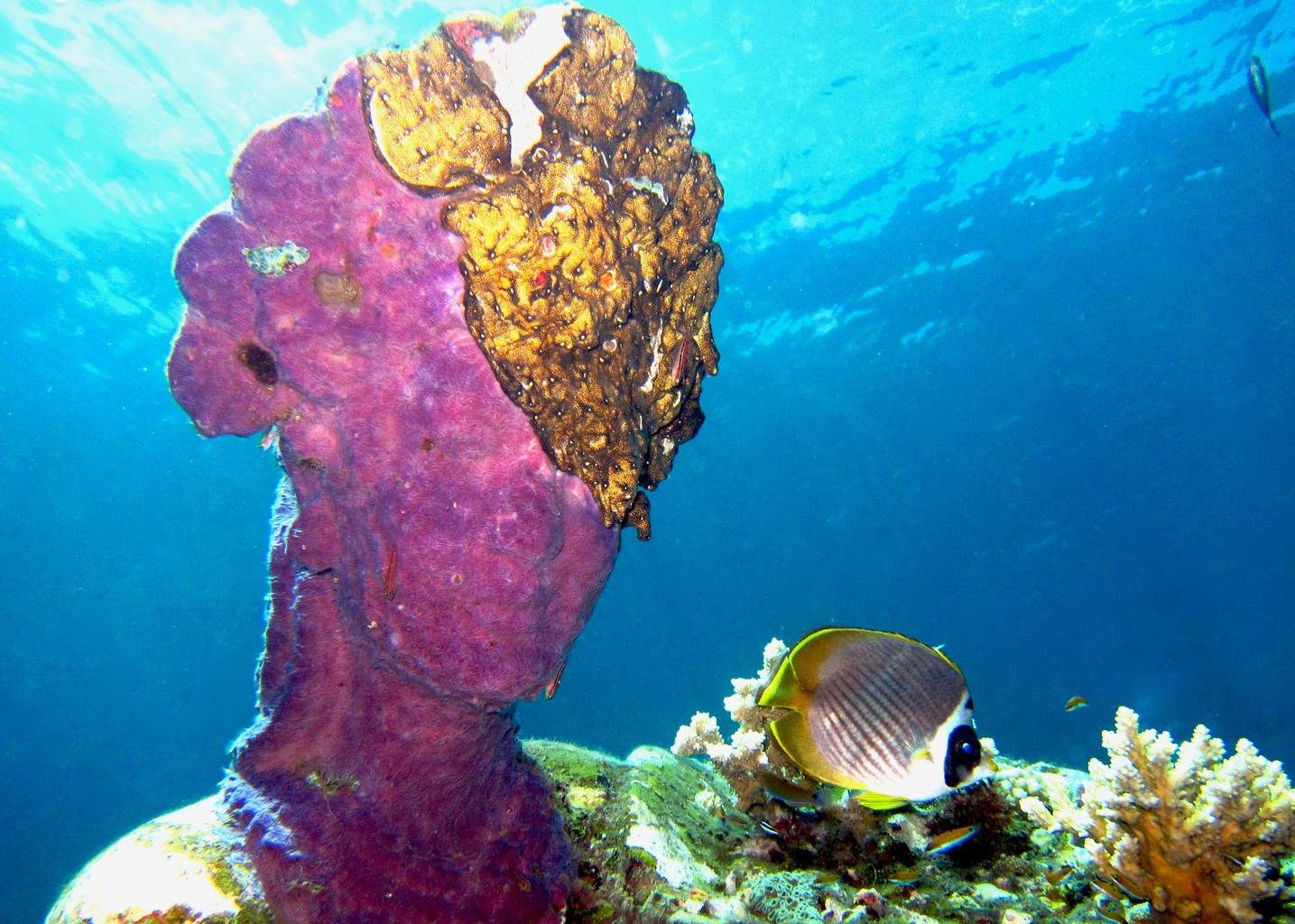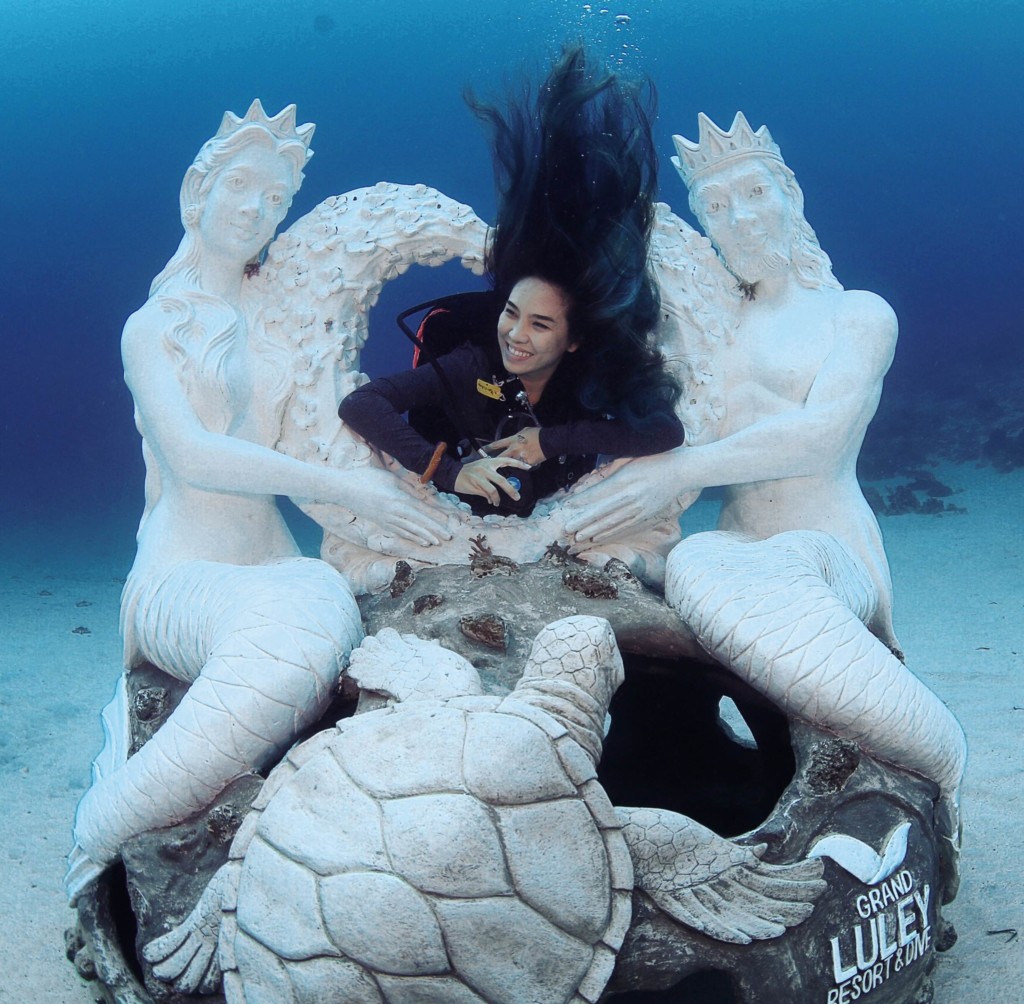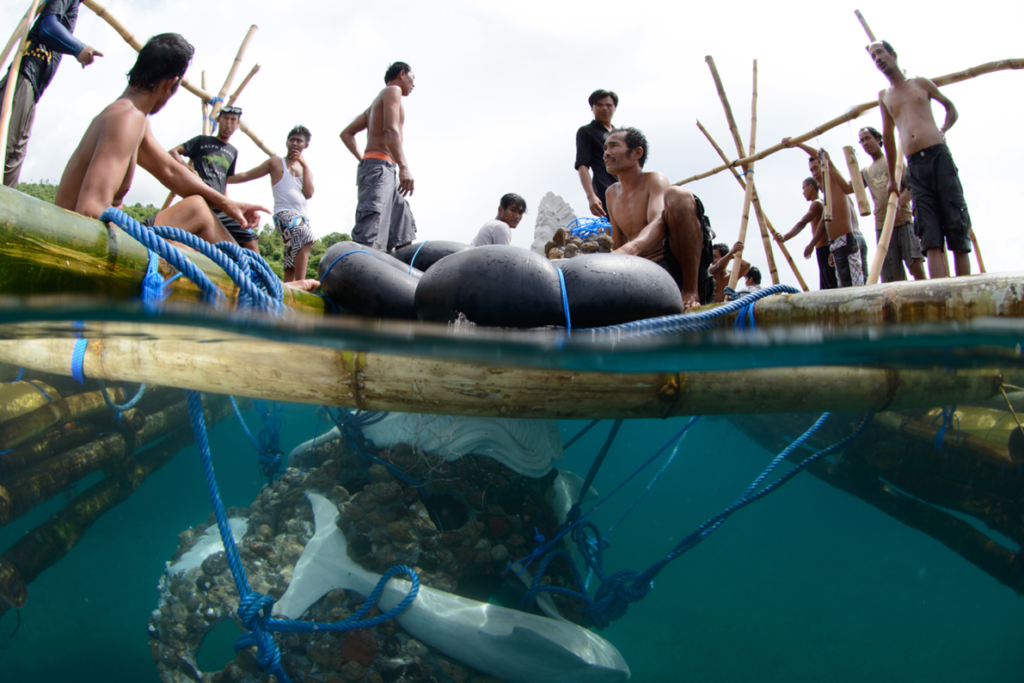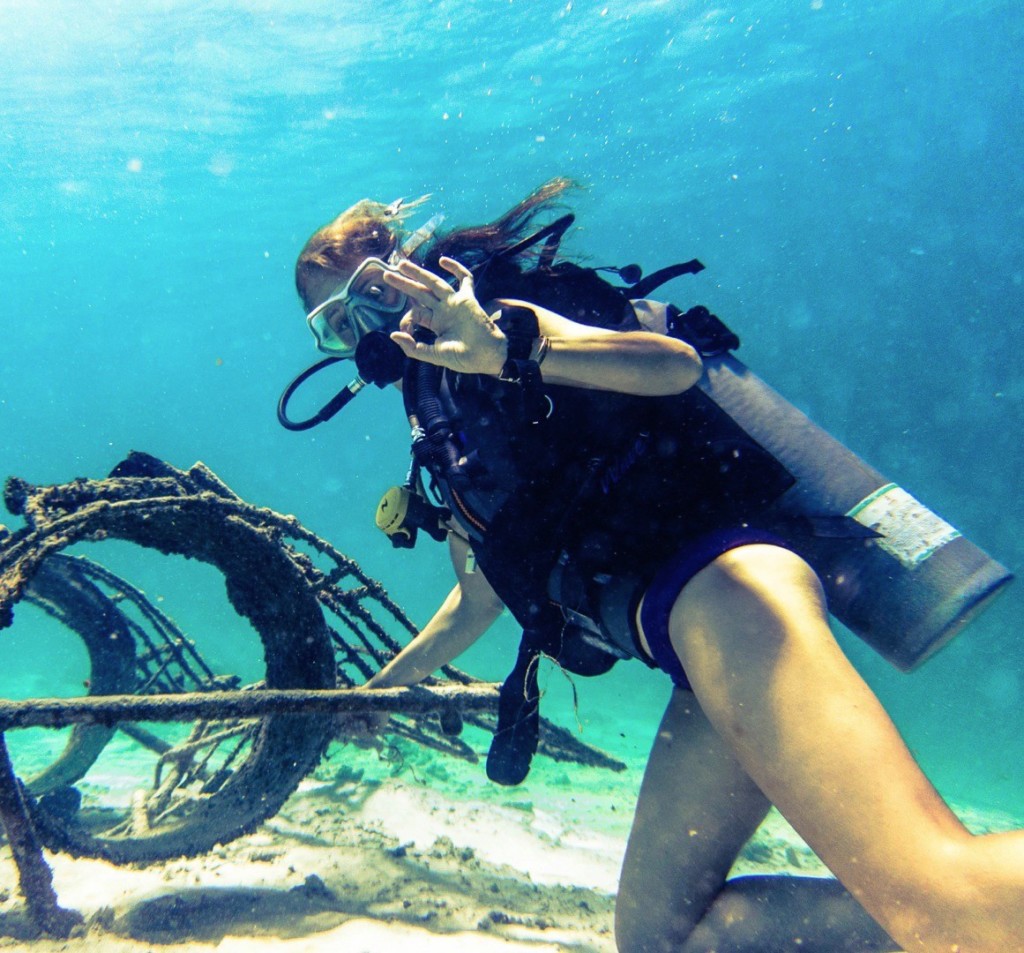Marine Life & Conservation
Serendipity

Serendipity means a “fortunate happenstance” or “pleasant surprise”. The New Oxford Dictionary of English defines serendipity as the occurrence and development of events by chance in a satisfactory or beneficial way, understanding the chance as any event that takes place in the absence of any obvious project.
This was exactly how I came to connect with Ocean Crest Alliance who the Marine Foundation are forming a new partnership with. I was asked by the TerraMar project to be a guest host for the Daily Catch on Global Ocean TV. As with any request I receive, I researched the organisation and saw the great work they are doing. I would recommend you help this cause and that of our seas and get yourself an ocean passport.
I wanted to better understand what they would expect from me as a guest presenter, so I watched a number of previous episodes and was fortunate enough to discover one featuring Joseph Ierna, the founder of Ocean Crest Alliance. OCA is a 501(c)(3) non-profit organisation, registered in the United States and the Bahamas and was established to create awareness, to inspire, and to educate others about our Earth and Oceans and to illustrate the real issues we all face today. Joseph like myself has fallen in love with our Oceans and Seas and as I watched their Global TV episode I had that tingling feeling I get when I know something serendipitous is brewing.
I rode the wave, as they say, and looked up their website to learn their goal is ‘to Honor, Protect, and Restore the Health of the Worlds Oceans and the life of the Earth’s Systems through Conservation, Research, Education, Science and Technology programs’. These objectives share much in common with those of the Marine Foundation’s work and are very much in alignment with my own dreams. They were just lacking the key word that is the essence of our unique approach, creativity, and I knew I wanted to connect with them.
As I read on, I was very happy to learn they have worked closely with the community and government in establishing the 215,000 acre Marine Protected Area called Long Island Marine Management Area, or LIMMA for short. LIMMA from the onset has engaged the locals and are looking at some very innovative ways to establish long term economic based solutions. This innovative approach immediately struck me.
By unfortunate chance it has been discovered that the traditional approach to funding and implementing an MPA is fraught with problems, often implemented through a top down approach. There is insufficient socialisation and people resent the laws and restrictions that they feel are implemented by outsiders, taking away their livelihoods. “ A careful consideration of the receptivity of the fishing communities to MPAs is fundamental for their long term success.” (Agardy et al. 2003).
Even a seemingly windfall success of large amounts of funding has its downfalls, with initial investments going into complex infrastructures that cannot be sustained longterm, either economically or by an untrained local community. In the long term, leaving these MPA areas underfunded with no way to implement the laws and a local community who are not invested. I saw this first hand at Bunaken where we installed ‘the love mermaids” last November. This MPA was once considered such a success but I saw first hand evidence that dynamite fishing was still occurring; the reefs were suffering a decline in health and even though large funding had paid for boats and staff to enforce fishing restrictions, they were too scared to go out and defend their seas.
In a conversation I later had with Joseph (once I had asked Robert Foos of the Terra Project to connect us), we discussed that with people so desperate and so much money able to be made in illegal fishing, It is very complicated to enforce fishing restrictions… and dangerous.
An MPA’s best asset is a vested local community; if they feel empowered and positioned to benefit from its success, there is an inherent and genuine love for their heritage that is hard to buy! I hate being told what to do so I can only imagine what it must feel like for a fisherman who’s family has fished for generations that now they must now stop.
The Economist William Russell Easterly who specialises in economic development wrote an interesting book called The White Man’s Burden (the title refers to Rudyard Kipling’s famous poem of the same name). Controversially, Easterly suggests that ’messianic do-good missions are ultimately modern reincarnations of the infamous colonial conceit.’ I have seen many so called experts imposing theories thought out in institutions far away from the sea!
I am not suggesting that grants should be extinguished. We certainly rely on them, but valuing the local community and their wisdom and love for their sea is essential. A fisherman understands when their livelihood is under threat and like any father wishing to feed his family, I think learning how to take control and feel like a decider in the fortune of their own destiny is something that when not permitted brings tears to my eyes.
I love the OCA’s Lionfish Fisheries Program which has been developed to bring direct and immediate economic opportunity for large numbers of the local community. The program shows that removal of lionfish is an effective management tool to protect and preserve the biodiversity of the Bahamas’ native fish life, and a much welcome and needed addition to the local economy! These are an invasive species that have come into the Caribbean from The Indo Pacific in the hull of ships in their Ballast water. Ballast water is water carried in ships’ ballast tanks to improve stability and balance. The water is taken into the hull or discharged when cargo is unloaded or loaded to maintain weight or when a ship needs extra stability in foul weather. When ships take on the ballast water, plants and animals that live in the ocean are also picked up. The cargo travels around the Globe and the same animals are then released into foreign seas. The Lionfish look stunning but are predators, and destroy the eco-system’s delicate balance in their new marine home. They are challenging to catch as they have toxic spines but they are actually incredibly good to eat. On my recent trip to Belize I came across a jewellery artist who was cleverly making stunning earrings and other items from the tails and fins.
OCA is also establishing a Coral Nursery Restoration Program, and this is where The Marine Foundation comes in. We bring a uniquely creative approach; Our Living sculpture in the Sea program has proven highly effective as an aspect to a successful marine management strategy. I feel it was by a seemingly unfortunate events that I was even able to conceive the Living Sculpture in the sea Program. During my research it was divers love of wreck diving that seeded the concept. Ships that have come to an untimely end and sunk to the bottom of our seas only to become thriving marine eco-systems.
‘The notion of serendipity is a common occurrence throughout the history of scientific innovation such as Alexander Fleming’s accidental discovery of penicillin in 1928. Innovations presented as examples of serendipity have an important characteristic: they were made by individuals able to “see bridges where others saw holes” and connect events creatively, based on the perception of a significant link.’
Our times are calling to each and every one of us to be creative and innovative. We desperately need to realise we have some major challenges to face in our beautiful world both above and below and I am thrilled to announce The Marine Foundation’s new partnership with Ocean Crest Alliance.
“I have noticed that even those who assert that everything is predestined and that we can change nothing about it still look both ways before they cross the street.” – Stephen Hawking
Blogs
The Ocean Cleanup Breaks 10,000,000 KG Barrier

The Ocean Cleanup, the global non-profit project, has removed a verified all-time total of ten million kilograms (22 million lbs.) of trash from oceans and rivers around the world – approximately the same weight as the Eiffel Tower.
To complete its mission of ridding the oceans of plastic, The Ocean Cleanup uses a dual strategy: cleaning up the Great Pacific Garbage Patch (GPGP) to remove the plastic already afloat in the oceans, while stopping the flow of plastic from the world’s most polluting rivers.
Through cleaning operations in the GPGP and in rivers in eight countries, the cumulative total of trash removed has now surpassed ten million kilograms. This milestone demonstrates the acceleration of The Ocean Cleanup’s impact, while underlining the astonishing scale of the plastic pollution problem and the need for continued support and action.
While encouraging for the mission, this milestone is only a staging point: millions more tons of plastic still pollute our oceans and The Ocean Cleanup intends to continue learning, improving and innovating to solve this global catastrophe.
This announcement comes as governments from around the world meet to continue negotiations to develop a new legally binding instrument to end plastic pollution at INC4 in Ottawa, Canada. Representatives of The Ocean Cleanup will be in attendance and the organization will be urging decision-makers to collaborate towards a comprehensive and ambitious global treaty which addresses plastic at all stages of its life cycle and in all marine environments worldwide, including in areas beyond national jurisdiction.
It is encouraging to see that the need for remediation is reflected in the various options for potential treaty provisions. It is essential that the final treaty contains clear targets for the remediation of legacy plastic pollution, and reduction of riverine plastic emissions.
Tackling plastic pollution requires innovative and impactful solutions. The treaty should therefore incentivize the innovation ecosystem by fostering innovations that make maximal use of data, technology and scientific knowledge – such as those designed and deployed by The Ocean Cleanup.
‘After many tough years of trial and error, it’s amazing to see our work is starting to pay off – and I am proud of the team who has brought us to this point.’ said Boyan Slat, Founder and CEO of The Ocean Cleanup. ‘While we still have a long way to go, our recent successes fill us with renewed confidence that the oceans can be cleaned.’
The Ocean Cleanup was founded in 2013 and captured its first plastic in 2019, with the first confirmed catch in the GPGP coming soon after the deployment of Interceptor 001 in Jakarta, Indonesia. After surpassing one million kilograms of trash removed in early 2022, the non-profit project has since progressed to the third iteration of its GPGP cleaning solution, known as System 03, and a network of Interceptors currently covering rivers in eight countries, with more deployments set for 2024.
About The Ocean Cleanup
The Ocean Cleanup is an international non-profit organization that develops and scales technologies to rid the world’s oceans of plastic. They aim to achieve this goal through a dual strategy: stemming the inflow via rivers and cleaning up the legacy plastic that has already accumulated in the ocean. For the latter, The Ocean Cleanup develops large-scale systems to efficiently concentrate the plastic for periodic removal. This plastic is tracked and traced through DNV’s chain of custody model to certify claims of origin when recycling it into new products. To curb the tide via rivers, The Ocean Cleanup has developed Interceptor™ solutions to halt and extract riverine plastic before it reaches the ocean. Founded in 2013 by Boyan Slat, The Ocean Cleanup now employs a broadly multi-disciplined team of approximately 140. The foundation is headquartered in Rotterdam, the Netherlands.
For more information, visit: theoceancleanup.com and follow @theoceancleanup on social media.
Marine Life & Conservation
Steve Backshall to headline Shark Trust’s flagship event: For the Love of Sharks

Join a host of amazing, shark loving, speakers including Steve Backshall and the Shark Trust team for an evening celebrating shark conservation at the Royal Geographical Society in London this November.
Date: 29th November 2024
Time: 6-10pm
Location: Royal Geographical Society, London
Tickets: https://www.sharktrust.org/Event/flos24
The event will be a celebration of all things shark. Those lucky enough to get hold of tickets will hear from engaging guest speakers with a passion for sharks.
The line-up includes (*subject to change if unforeseen circumstances arise)
Steve Backshall: One of television’s busiest presenters, BAFTA award-winning wildlife expert Steve has been passionate about the wild world ever since he was young.
Steve’s impressive TV career has taken him all around the world, investigating a wide array of species and environments. Steve has filmed over 100 hours of children’s wildlife programmes with the BAFTA award winning Deadly 60 franchise and recently, with Sky Nature, for his new series ‘Whale with Steve Backshall’. He has been a patron for the Shark Trust for 10 years.
Simon Rogerson: is a photojournalist specialising in natural history, diving and the sea.
He is editor of SCUBA magazine, the official journal of the British Sub-Aqua Club. Simon started his career as a crime reporter but gravitated towards his ‘less depressing’ interest in underwater exploration, joining the staff of DIVE magazine in 1999. In 2005 he was named ‘Editor of the Year’ in the PPA’s Independent Publishing Awards. Simon also works as a freelance writer, contributing frequently to the Sunday Times and Telegraph, in addition to BBC Wildlife, Esquire, and a host of international diving magazines. He is the author of a book, Dive Red Sea, published by Ultimate Sports. Now based in Berkshire, Simon has been a Patron of the Shark Trust for 20 years.
More speakers to be announced soon. Head to the Shark Trust website to learn more.
The evening will also allow guests the final chance to see the Oceanic 31, shark art exhibition. Some of the artwork will be auctioned/raffled at the event, while the rest will be auctioned online to raise money for the Shark Trust Oceanic Programme.
For the Love of Sharks is an evening with something for everyone who is interested and fascinated by sharks. Join the Shark Trust, their Patrons, Trustees and Staff, along with a host of supporters for this celebration of shark conservation.
For more information or to buy a ticket: https://www.sharktrust.org/Event/flos24
-

 News3 months ago
News3 months agoCapturing Critters in Lembeh Underwater Photography Workshop 2024: Event Roundup
-

 Marine Life & Conservation Blogs3 months ago
Marine Life & Conservation Blogs3 months agoCreature Feature: Swell Sharks
-

 Blogs2 months ago
Blogs2 months agoMurex Resorts: Passport to Paradise!
-

 Gear Reviews3 weeks ago
Gear Reviews3 weeks agoGEAR REVIEW – Revolutionising Diving Comfort: The Sharkskin T2 Chillproof Suit
-

 Blogs2 months ago
Blogs2 months agoDiver Discovering Whale Skeletons Beneath Ice Judged World’s Best Underwater Photograph
-

 Gear Reviews3 months ago
Gear Reviews3 months agoGear Review: Oceanic+ Dive Housing for iPhone
-

 News2 months ago
News2 months agoPADI Teams Up with Wellness Brand Neuro to Drive Ocean Change and Create a Blue State of Mind
-

 Marine Life & Conservation2 months ago
Marine Life & Conservation2 months agoSave the Manatee Club launches brand new webcams at Silver Springs State Park, Florida








